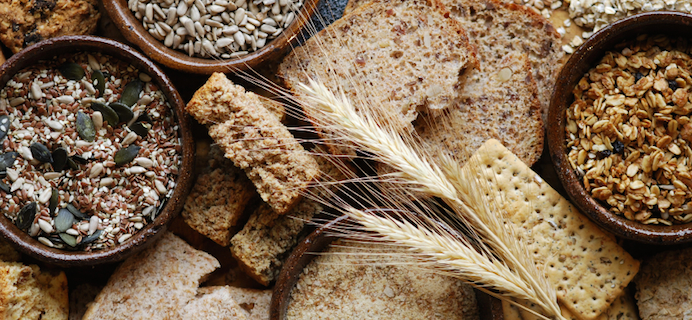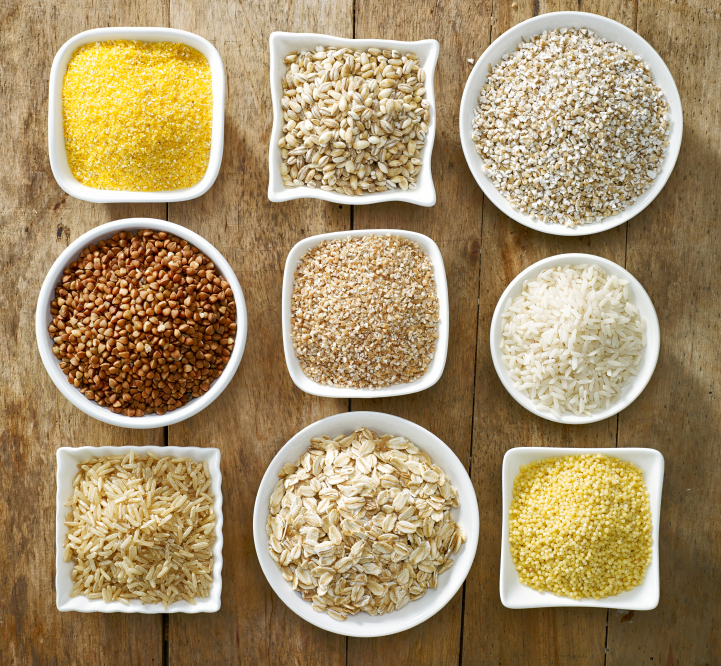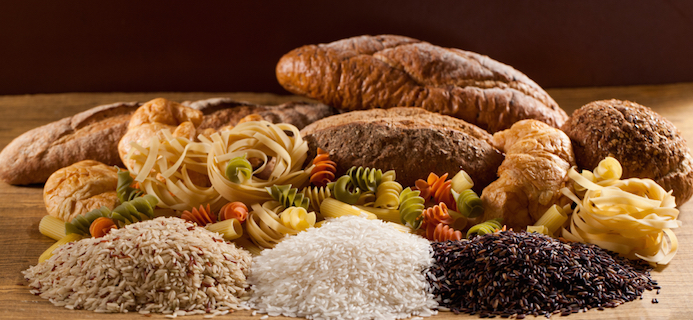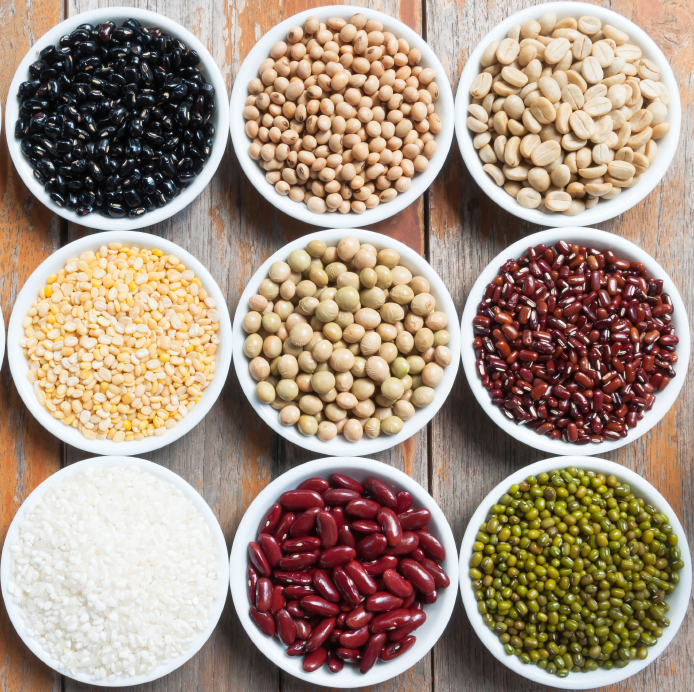From the Atkins Diet to Paleo, they have become persona non-grata in food terms but are carbohydrates good for you? Personal trainer Grace Lavinia says yes, here’s why
As women we are targets for mass marketed, brand new, life changing, diets. Can I please urge you to leave the latest diets behind and think about your bodies as powerhouses for success. Basic, fundamental nutrition seems to have long been forgotten, quickly replaced by the latest ‘fad’.
We are all intrinsically connected to our surroundings and what goes into our bodies has a profound effect on our productivity and emotions. I could rant forever about the merits of a balanced diet, but why is a ‘balanced’ diet so important?
starchy carbs should make up around 1/3 of your daily calorific intake
As a nation we are continually looking for information, and knowledge – ‘simple’ answers no longer satisfy our desire for deeper understanding.
This article aims to explore why we need the food we eat and how cutting out any one major food group at a time is counter effective.
MORE: 5 grains your diet needs now (and how to cook them)
Carbohydrates continually receive bad press; this is because the term is incredibly vague. It describes one of three macronutrients our diets need for us to survive as a species – the other two are protein and fat. So many different food types contain carbs; they aren’t just bread and pasta. They are found in almost everything – in fact, all vegetables and fruits are actually carbohydrates. They are essentially sugar molecules either arranged in short or long chains.
TYPES OF CARBS
There are two main types simple (short) and complex (long). Complex carbohydrates take a lot longer for the body to break down and therefore provide us with energy for a much longer period of time. These include starchy vegetables (potatoes, sweet potatoes, beetroot), whole grains such as oats, buckwheat, quinoa and pluses including lentils, chick peas and all beans. These are the carbs you need.
Simple carbs are made up of one or two sugar molecules and are a quick source of energy because they are quickly digested. Examples of these include honey, fruit drinks and sweets. They can generally be avoided as the adverse effects of the sugar spike that they cause can outweigh any noticeable benefits. If you have a sweet tooth try to stick to sugars with the lowest fructose content including dried apricots and fruits such as berries, cantaloupe melon and plums.
HOW CARBS CREATE ENERGY
Carbohydrates are the body’s main energy source. Many of our internal organs including the heart, kidneys and the brain require them in order to function properly – without healthy carbs your energy levels will plummet and concentration will become more difficult.
The way I see it, fulfilling healthy meals will keep your metabolism going and will stop you reaching for the nearest quick fix of sugar or fat. We are all guilty of reaching for the nearest treat but carbs may stop that happening by keeping your body’s fueling system under control.
For a healthy balanced diet starchy food should make up around 1/3 of your daily calorific intake. These are complex carbs with the fibre still intact, all the examples above along with short grain brown rice and healthy brown bread such as stone ground, yeast free sourdough which is incredibly filling.
The fibre in these foods is essential for healthy digestion and will ultimately aid weight loss. I’m talking about whole grains, lentils and starchy vegetables – insoluble fibre.
MORE: Meet the new healthy supergrains
The main thing to be aware of is the effect of a carbohydrate on your blood sugar level. This can be measured using glycaemic load (GL), which is a number equating to the amount a portion of a food will raise your blood sugar. The higher the number the quicker the sugars will be released into your blood stream. The release of glucose into your blood should be as slow as possible to keep you feeling fuller for longer and stop energy crashes. Check out the Glycaemic Load of 100 foods here.
If you’re one if those people who slave away at the gym for hours and what feels like days but see little results, carbs may be your magic key. Your muscles rely on carbs for energy as fuel.
CARBS AND YOUR MUSCLES
Carbohydrates make your muscles contract. They give you the ability to really feel the burn. If your muscles aren’t contracting properly then you can’t gain and maintain muscle and muscle is important because it burns more calories than fat, thus increasing your metabolism, even when you’re not exercising. In short, your muscle fibres contain actin and myosin, two different components that contract against each other. This contraction is possible by the use of glycogen, a fuel stored in the muscle and made by eating carbohydrates.
As a personal trainer I monitor fairly carefully what goes in my body and how I feel. The days where I eat mostly veg and fruit and forget my porridge in the morning, I can instantly tell the difference in my performance in the gym.
If you get to the gym with bundles of energy and after 20 minutes you’re exhausted, this could be a lack of glycogen in your muscles, which is fuel that comes from carbohydrates
If you get to the gym with bundles of energy and after twenty minutes you’re exhausted, this could literally be a lack of glycogen in your muscles. A lack of glycogen can also slow down your recovery period. Carbohydrates soon after exercising will top the stores up and your muscles will be able to function normally.
Once your body runs out of glycogen it will turn to other sources for energy. These can be protein or fat but other times your body will turn to muscle. This process is a hormonal response to glycogen depletion where the body turns to muscle to gain energy from the proteins within – this can lead to muscle atrophy and muscle loss. It’s not good for your health as you age.
It seems to me like a no brainer – eat your carbs. Not in excess, not highly processed but don’t see them as something that you should avoid. Don’t be wary of them in the evening either as some of them such as brown rice and sweet potatoes contain large amounts of tryptophan which relax the body and help you get a good night’s sleep.
MORE: Expert opinion – Do carbs make you fat?
CARBS AND CALORIES
Something I urge you to think about – salad dressings often have a much higher calorie content than the equivalent meal containing carbs. Fat yields nine calories per gram, whereas carbohydrates have just four calories per gram.
WHAT TO EAT
So what should you be eating to compliment a healthy diet? You should try incorporating complex carbs in their most natural state, such as porridge oats, sweet potatoes, brown rice and vegetables. Make sure they are purchased whole, uncut and unprocessed. Oats should be the jumbo variety – raw and natural with no added flavourings and rice should be short grain brown and take 25 minutes to cook…not the easy cook kind. Try to avoid bread, as it is highly processed. You could make your own or always choose wholegrain or rye varieties. Quinoa is a major staple of mine, which is great for salads and a great ‘take to work’ option. These simple alternatives will improve your digestion, mood and energy.

Like this article? Sign up to our newsletter to get more articles like this delivered straight to your inbox.
























































